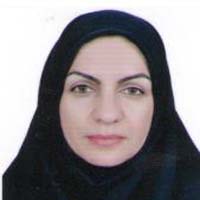ascerrticism contents in khaghanee and Abolatahiye's poetry
Author(s):
Abstract:
Asceticism and contents related to it have always been the center of attention for poets and writers in Persian and Arabic literature. Abolatahiye، the prominent Arab poet، is one of the pioneers in this field. In the Persian poetry Khaghanee is in the course of enrichment of asceticism and research poetry that before him poets such Kasaee، Roodaki، Sanaee etc. had the experience of using it which finally Sanaee took it to the highest point. The existence of common asceticism consents caused that the poetry of Khaghanee and Abolatahiye brings under investigation and comparison. Furthermore، the affiliation of these two poets to the royal court، their interest for attracting readers and their imprisonment for a short time are some of the common points of these two poets. Material world and subjects related to it avoidance of greediness، avidity، avarice، recommendation for contentment، death and contents related to it are subjects that have studied in this research paper. The result of this investigation showed that، on the one hand both poets have their own special views، although; khaghanee has different views toward the word in compare with abolatahiye and the death in Abolatahiye''s poetry is more prominent. On the other hand، the common points in the verses of these two poets are more than the differences which originates from their Iranian and Arabic culture as well as koranic verses and hadithes.
Keywords:
asceticism , world , contentment , death , khaghanee , Abolatahiye
Language:
Persian
Published:
Comparative Literature Studies, Volume:8 Issue: 30, 2014
Pages:
45 to 62
https://magiran.com/p1372257
سامانه نویسندگان
مقالات دیگری از این نویسنده (گان)
-
Correction and pendency Zighnonnameh Epopee and the dimensions of its literary geography
Mitra Kashefi, Mohammadreza Taghieh *, Maryam Mahmoudi
Quarterly of Geography (Regional Planing), -
Analyzing and examining the position of women in the proverbs of Dahaghan city based on cognitive distortions of Dahaghan city based on cognitive distortions
Zohreh Asadian, *, Parisa Davari
Journal of The Iranian Studies,



